SUMMARY
This is AI generated summarization, which may have errors. For context, always refer to the full article.
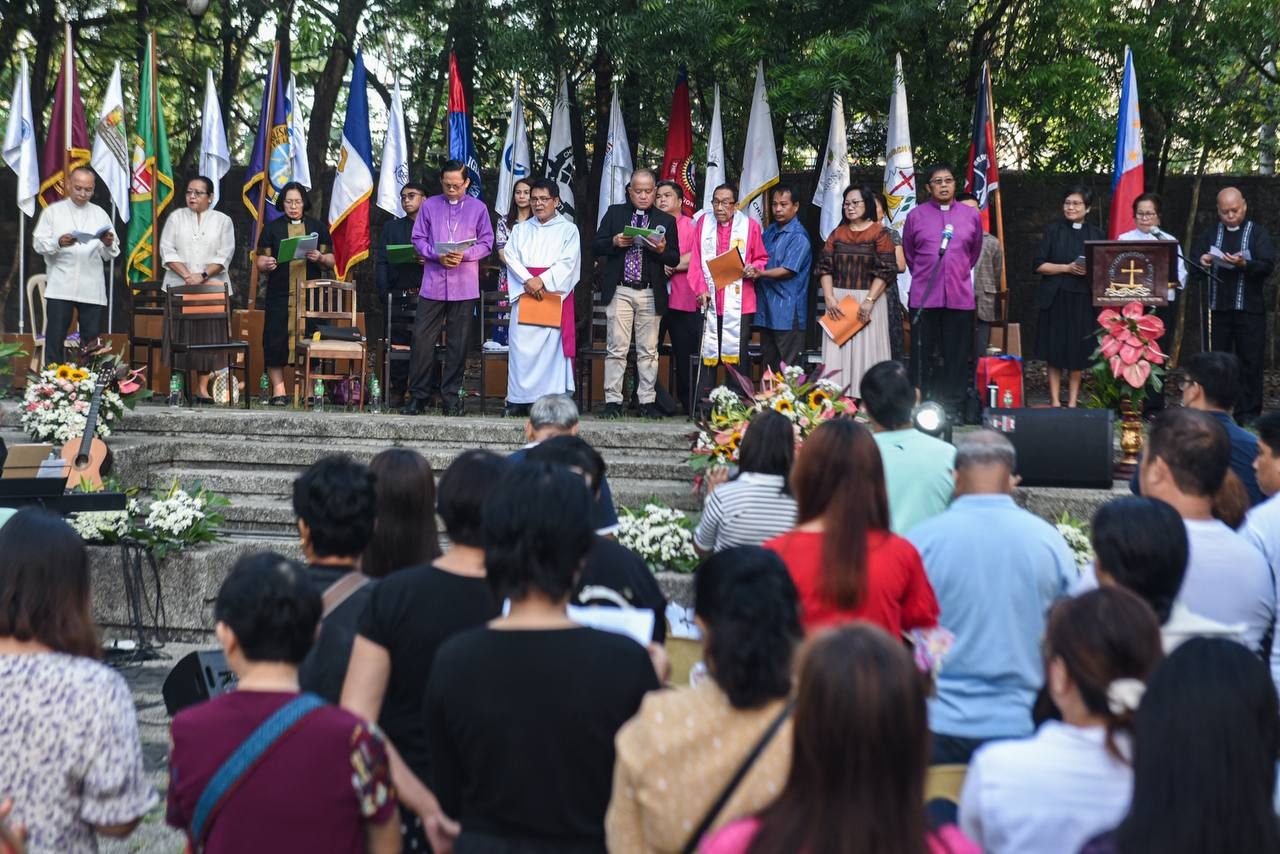
MANILA, Philippines – More than 400 Christians gathered at Bantayog ng mga Bayani, a memorial for victims of the Marcos dictatorship, to celebrate the resurrection of Christ in the face of the Philippines’ problems under the second Marcos presidency.
The 61-year-old National Council of Churches in the Philippines (NCCP), the largest alliance of Christian churches in this predominantly Catholic country, held its 75th Ecumenical Easter Sunrise Service at the Bantayog ng mga Bayani from 4:30 to 7 am on Easter Sunday, March 31.
In this Easter service, various prayer leaders took turns in praying to the “God of freedom” for “genuine justice and peace,” for the safety of Filipino fishermen in the face of China’s bullying in the West Philippine Sea, and for assistance to migrants and workers.
The prayers at the ecumenical service also sought to uphold the rights of indigenous people and cultural communities against “exploitative and oppressive systems,” to defend women “amid patriarchy and a feudal system,” and to open the eyes of Christians to “the realities of our LGBTQIA+ community.”
NCCP, known for its activist stance, is at the forefront of fighting government abuses, such as the Duterte administration’s war on drugs. This comes at a steep price: its members have been red-tagged.
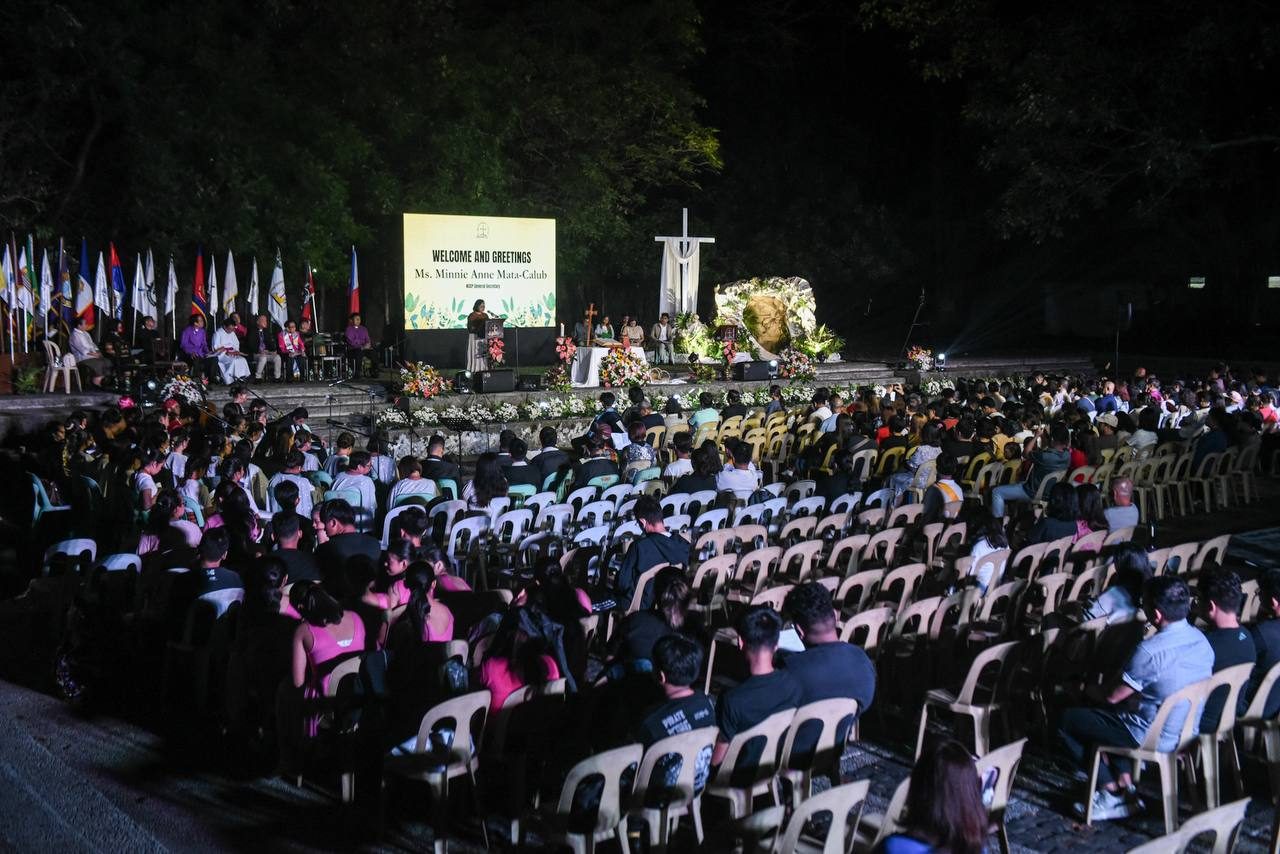
“Talking about Jesus’ Lordship is about challenging the powers that are lording over us,” said NCCP chairperson Bishop Melzar Labuntog in his homily on Sunday.
Labuntog, who is also the general secretary of the United Church of Christ in the Philippines, noted how Jesus “was killed because of His passion for a different kind of world.” In this world, he said, “the good news is proclaimed to the poor,” and there is freedom for prisoners and the oppressed, and recovery of sight to the blind.
“To declare that Jesus is alive means that the hungry are given food, the homeless are being sheltered, the poor are being cared for,” Labuntog said.
‘Resurrection is hope’
In an interview with Rappler, Labuntog said it was significant that the NCCP was holding its Easter service at Bantayog ng mga Bayani because it memorializes “heroes of the faith who have given their lives for a very worthy cause” during the Marcos dictatorship.
Labuntog said that under the dictator’s son, President Ferdinand Marcos Jr., the nation’s problems still include poverty, low wages, and high prices of goods. Churches should stay involved in social issues like these because “God is involved in the lives of the people.”
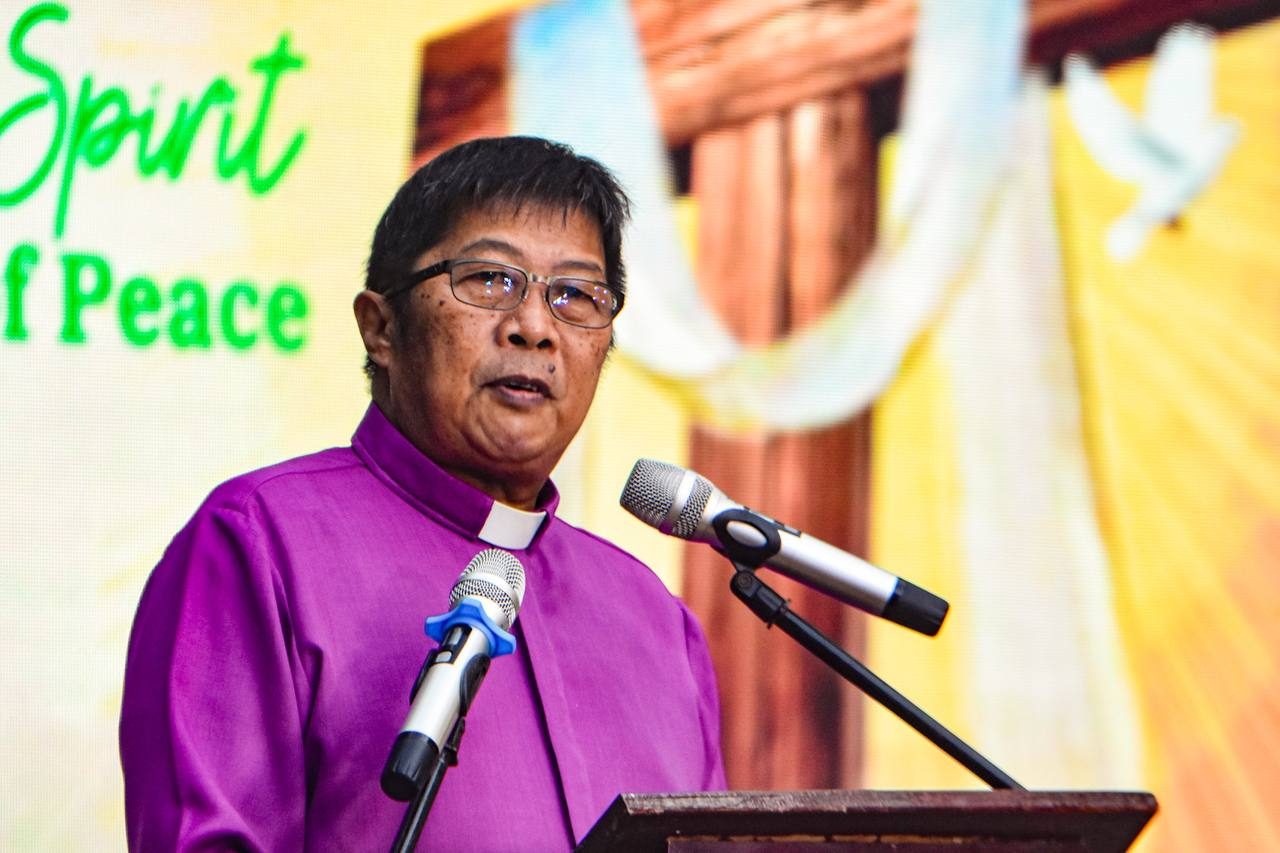
Also explaining why the NCCP chose to celebrate Easter at Bantayog ng mga Bayani, NCCP general secretary Minnie Anne Mata-Calub said that former NCCP members – such as their former general secretary, peace advocate Bishop La Verne Mercado – are among the names on the Bantayog wall of remembrance.
The ambience of the Bantayog helps explain what Easter means for Christian churches, she added.
“Easter, as the resurrection of Jesus Christ, also gives hope that in the middle of all the chaos and problems in our society, there is hope – because resurrection is hope for us,” she told Rappler in a mix of English and Filipino.
Dr. Gay Manodon, deacon of the Episcopal Church in the Philippines, also said Easter means hope – which is important in the fight against amending the country’s Constitution. “Imagine giving 100% ownership of our land, communications, and education to foreigners,” she said in a mix of English and Filipino. “There is hope that this will not happen.”
What they want to tell Marcos
Bishop Dindo Ranojo, general secretary of the Iglesia Filipina Independiente or the Aglipayan Church, said in a separate interview that churches should not keep quiet on social problems, and should instead serve as “modern prophets” who give hope to people.
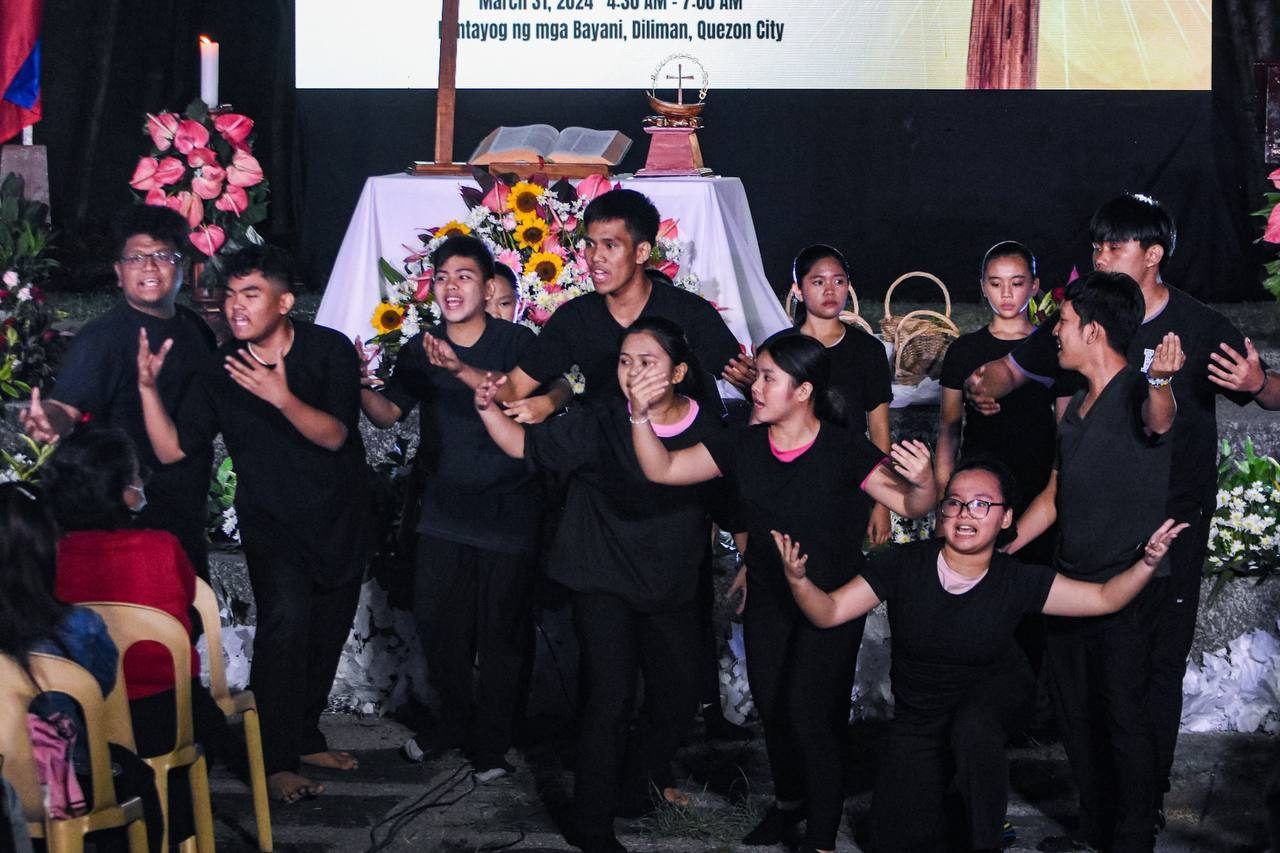
When asked about the biggest challenges under the Marcos presidency, Ranojo said in Filipino: “First, we need to continue the peace talks, fight for the West Philippine Sea, boost our agriculture, and look after the welfare of citizens, workers, farmers, and most of all the indigenous people… because the environment is our capital for our a better future.”
If given an opportunity to speak with Marcos, Ranojo said: “First, he should listen to the voice of the people. Second, he should pay attention to what is really happening and remedy the problems of our society.”
Bishop Rex Reyes of the Episcopal Church in the Philippines said that Christ “is understood from a prophetic standpoint” by the NCCP. “You challenge the status quo, and the essence of Easter sunrise is to galvanize that mobilization,” Reyes said.
Rappler asked Reyes, like Ranojo, about his message to Marcos if he gets the chance to address the President.
“Ay naku (Oh my gosh), I wouldn’t know how to address that guy,” said Reyes, who was a high school student when the President’s father declared Martial Law. “Until this time, I am still reeling from the impact of that rule.”
Reyes noted how the President “comes out with things that are similar to what his dad used,” like his slogan “Bagong Pilipinas” (New Philippines), which is similar to the “Bagong Lipunan” (New Society) of the Martial Law years. He also cited the President’s own version of his father’s Masagana 99 for boosting agriculture. “What the heck,” the bishop said.
“I would think twice about addressing him. I don’t like to talk to him,” Reyes said.
Toward the end of the interview, he pointed to the black marble walls where the names of Martial Law victims are inscribed at the Bantayog ng mga Bayani. “The fact that we celebrate this observance amid those great names there, is very important for me,” he added.
“Those are heroes. Those are not just names,” the bishop said. – Rappler.com
Add a comment
How does this make you feel?
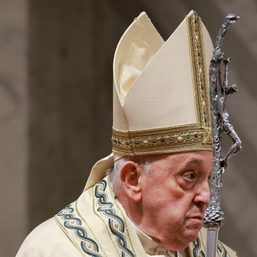


![[REFLECTION] He is risen!](https://www.rappler.com/tachyon/2023/04/Risen-TL-April-10-2023.jpg?resize=257%2C257&crop_strategy=attention)





There are no comments yet. Add your comment to start the conversation.